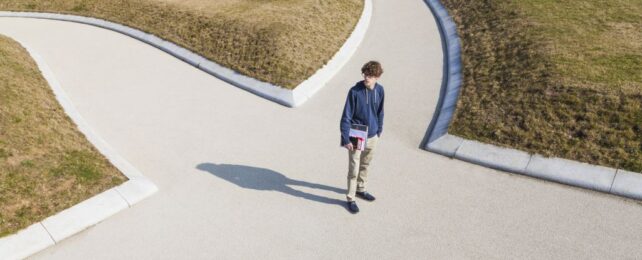Do you have a hard time making decisions?
Take your time answering. After all, a new study suggests people who make quick decisions are more likely to have stronger biases than those who take their time.
And it goes even further. Quick decision makers may tend to favor options that align with their biases – even when presented with evidence that contradicts their biases.
This finding suggests slow decision-makers ultimately make better choices, according to a team led by mathematician Samantha Linn of the University of Utah, while also giving some insights into the mechanisms of extremism.
"We show that in groups of agents who only differ in their initial biases, early decisions are made by agents with the most extreme predispositions," the researchers write in their paper. "On the other hand, late decisions do not depend on the initial bias and are more likely to be correct."
Slowness in making a decision is often perceived as a symptom of disorders such as anxiety, or merely a lack of self-confidence. It can also be perceived as a weakness.
Yet while many might weigh up evidence to make a call, some will launch into decision making based on innate responses, emotional reactions, mistaken assumptions, or the consequences of past decisions.
Linn and her colleagues wanted to investigate the effects of bias and information availability on the speed of decision-making from a purely mathematical perspective, using numerical models called evidence accumulation models. These are designed to assess how agents accumulate and integrate information in order to make a decision.
The researchers created models in which a number of agents had to decide between two options, H+ and H-. The agents in the model were assigned random biases towards one option or the other, and directed to accumulate evidence.
"Here we ask how individuals' initial biases in a group affect the order and accuracy of their choices," they write. "When is a decision driven by an agent's initial bias as opposed to accumulated evidence?"
Their results revealed that, in groups of agents whose only differences are in their initial biases, those with the most extreme predispositions made decisions with the most speed. The effect can be seen even in small groups, but is especially pronounced in larger groups, and the decisions of these biased agents agree with their initial bias, regardless of what information is available to them to access.
The time it took to make a decision was inversely proportional to the strength of the bias. Those agents that took the longest time made decisions that were least influenced by their initial bias. And their decisions were more likely to be correct than snap decision makers.
"Our decisions are often influenced by information we obtained previously and predilections we develop," the researchers write. "We have shown that these initial biases determine early decisions and have diminishing influence on later decisions."
It makes sense. If your mind is already made up about something, you don't really have to ponder it for very long when a choice is presented. If your favorite cuisine is Cajun, of course that's what you'll opt for if the alternative is hamburgers.
Because this is all mathematical, we can't extrapolate psychology onto it. The research is about cause and effect, without digging into the complex human behavior behind it. But it can be used as a basis to better understand that human behavior, in both large and small groups, and how our actions can be driven by the beliefs we hold.
The findings will be published in Physical Review E.
